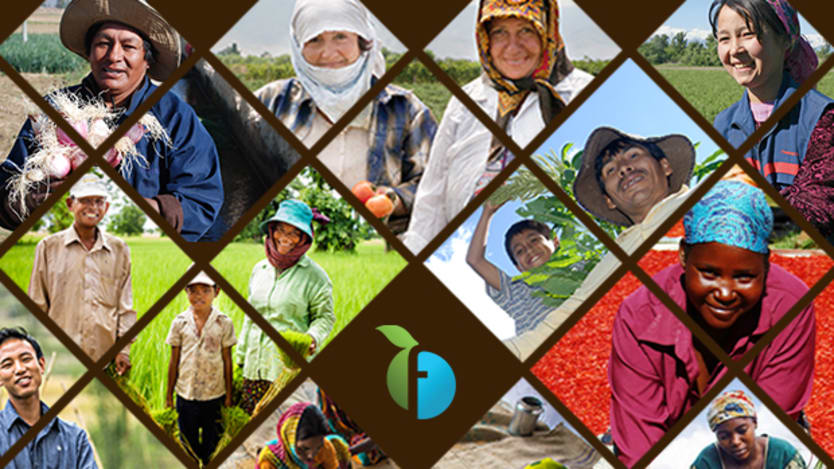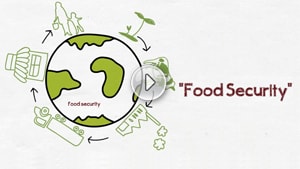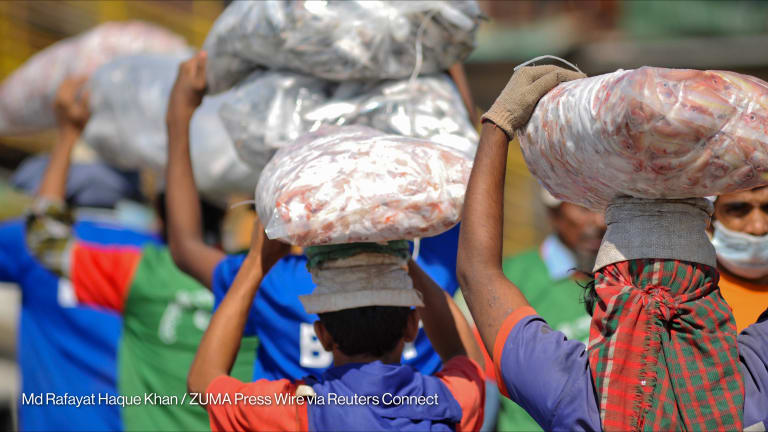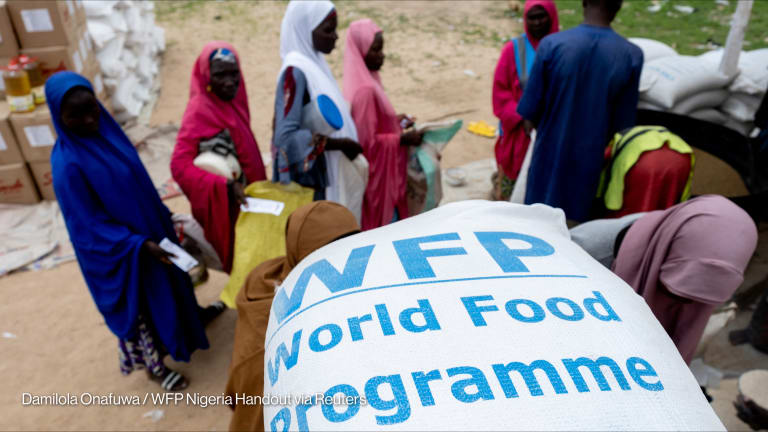
Concerns about food security — and efforts to achieve it — are nothing new for the international development community.
What is new is that those concerns now stem from an unprecedented confluence of pressures — population growth, urbanization, climate change — and they touch all corners of our increasingly connected globe.
A report released just last week sounds alarm bells that ring all too familiar. Its conclusion: We face a serious challenge feeding Earth’s growing global population in a sustainable manner.
Another, perhaps surprising, message? The United Kingdom’s food security will be at risk unless the government “plans now for future changes in our weather patterns and the changing global demand for food.”

Food security is not a developed-developing world conversation anymore. It is a global one, and the past year has seen momentum shift with new commitments from governments and the private sector and with a newfound willingness to set goals that create bridges between program areas instead of funding battles between them.
The African Union has declared 2014 the Year of Agriculture. The emerging post-2015 global development framework, drafted at the behest of the United Nations, may seek to end hunger by 2030. And India is implementing a new food security law which by October seeks to provide subsidized food grains to more than 1 billion people.
But the food security conversation has also moved beyond calorie counts and famine relief funding. Many development donors have turned their attention and funding — finally, according to some advocates — to the quality and nutritional value of the foods that are available. Nutrition has risen to the fore of the global development agenda, prompting further efforts to break down funding and programmatic silos and address the links between health, food, markets, land rights and governance.

The U.S. Agency for International Development’s “360-degree” nutrition strategy, launched by National Security Advisor Susan Rice in May, prioritizes programs for expectant mothers and infants to reduce developmental “stunting” due to undernutrition. And the Food and Agriculture Organization’s International Conference on Nutrition, its first since 1992, will kick off in Rome in November.
Governments in the United States and elsewhere are revamping their approaches to ensuring access to food; programs to build stable food systems in the face of climate change and other potential shocks tend to focus on strengthening supply chains and eliminating waste. Responding with expensive food shipments, year after year, to the same list of disaster-prone places may soon be a thing of the past.
And in all of these areas, new attention is falling on the role of the private sector to scale and sustain food security gains by integrating successful projects into robust markets, boosting productivity through technology and finance, and providing families with the income to buy foods that nourish their productivity and wellbeing.
See more on food security:
● How can food security interventions be more sustainable?
● NEPAD's goal: From farmers to businessmen
● Not just beneficiaries: Make the poor partners in fighting hunger
Still, questions about how to move forward, and how to feed a growing population of currently 7 billion while global average temperatures creep higher and water resources and soil nutrients threaten exhaustion, require a frank discussion about global food security and a willingness to tackle difficult questions without ideological blinders.
Questions about land-grabbing, genetically-modified crops, corruption, conflict and many others demand ethical and political consideration, and they require opportunities to engage in meaningful, global dialogue to find common ground and shared opportunities to move forward.
In that spirit, Devex is pleased to launch a new campaign, “Feeding Development,” to shine a light on new ways to feed our planet’s growing population, new ways to think about what a food-secure planet would look like and what it will take to get there.
We’re partnering with ACDI/VOCA, Chemonics, Fintrac, the Global Alliance for Improved Nutrition, Nestle and Tetra Tech, and we’ll be rolling out news, analysis, commentary and interactive online events beginning July 8 and extending through the month of July. We’ll feature contributions from international luminaries, changemakers and thought leaders, and we’ll provide a platform for our global audience to weigh in on one of the most pressing issues facing the world today.
Join the conversation at our LinkedIn group!
Throughout the campaign, we’re focusing on four sub-themes: environment, land rights, supply chains and nutrition. We’ll explore the links between them and the enabling environments to support them, and we’ll hear from the people on the ground, working in partnership to make food security a reality around the world.
Want to learn more? Check out Feeding Development's campaign site and tweet us using #FeedingDev.
Feeding Development is an online conversation hosted by Devex in partnership with ACDI/VOCA, Chemonics, Fintrac, GAIN, Nestlé and Tetra Tech to reimagine solutions for a food-secure future from seed and soil to a healthy meal.








